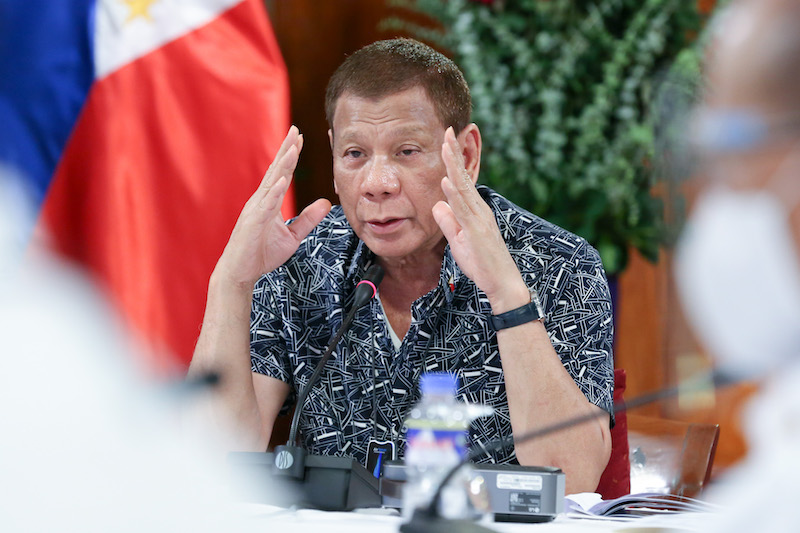 President Rodrigo Roa Duterte in Malacanang, June 30, 2020. ALBERT ALCAIN/PRESIDENTIAL PHOTO
President Rodrigo Roa Duterte in Malacanang, June 30, 2020. ALBERT ALCAIN/PRESIDENTIAL PHOTO
MALAYBALAY CITY (MindaNews / 03 July) – President Rodrigo Duterte signed into law Friday an anti-terror bill that critics describe as “dangerous” as it allegedly gives the government more powers to go after persons or groups suspected of terrorism.
The law, now Republic Act No. 11479, repealed the Human Security Act of 2007 and gives authorities the power to effect warrantless arrests and detain suspected terrorists and other persons who are not necessarily suspected of terrorism up to 24 days without charges.
Suspected terrorists can also be put under surveillance for 60 days.
Interior Secretary Eduardo Año announced the signing on Friday to media.
On Thursday, the Bangsamoro government had urged Duterte to veto the bill, saying it could lead to abuses against Muslims.
The president certified the bill as urgent drawing criticisms from many sectors.
Congress transmitted the bill to Malacañang for the president’s signature on June 9.
A number of lawmakers had withdrawn their support for the measure.
Many retired generals, some of them serving in the Duterte government, had pushed for the bill. In the Senate, its chief proponent is Senator Panfilo Lacson, who served as director general of the Philippine National Police under former president Joseph Estrada.
‘Broad and vague’
The law defines the following as crimes: threatening, planning, training, facilitating, proposing, and inciting to terrorism.
Critics of the law singled out that the definition of terrorism is “broad and vague” and may impinge on freedom of speech and expression.
They also argued that the creation of the Anti-Terrorism Council usurps the power of the judiciary.
Various groups and individuals have said they would challenge the constitutionality of the law before the Supreme Court.
Defenders of the new law allayed fears it would lead to more violations of civil and political rights. They said the definition of terrorism excludes protest actions and other activities done in the exercise of civil and political rights.
But some legal minds said government can label these acts as terrorism if it deems that such acts are meant to “create a serious risk to public safety.” (H. Marcos C. Mordeno/MindaNews)
